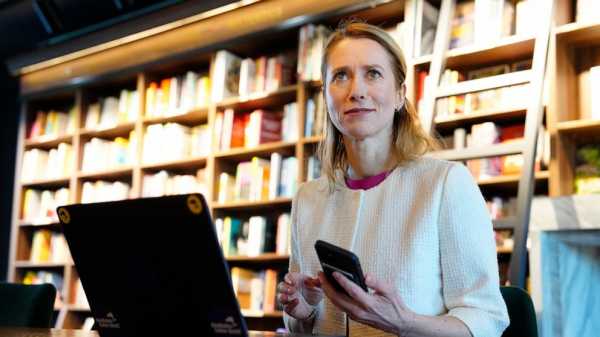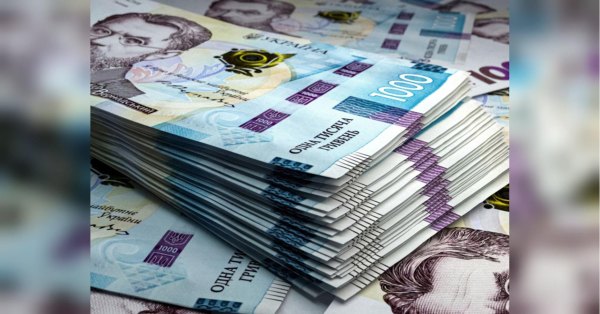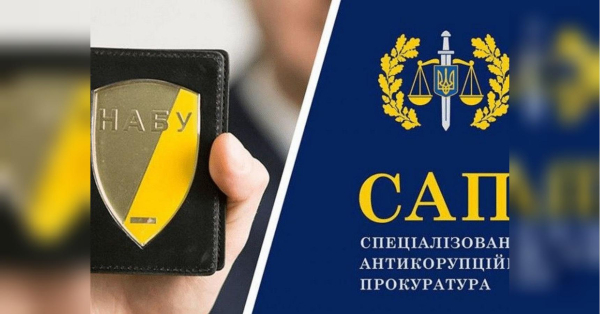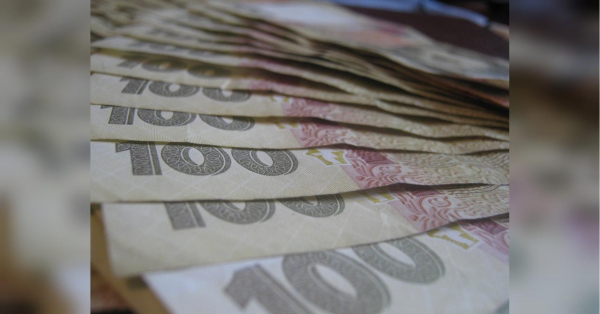
TALLINN, Estonia — Estonia, which is providing Ukraine with more weapons than any other country relative to its economic might, is preparing to hold a general election Sunday that will determine whether it can sustain that high level of support.
Prime Minister Kaja Kallas, 45, has emerged in the past year of war as one of Europe's most outspoken supporters of Ukraine. She's seeking a second term, with her standing enhanced by her international appeals to impose sanctions on Moscow.
A Baltic nation of 1.3 million people that borders Russia to the east, Estonia broke away from the Soviet Union in 1991 and has taken a clear Western course, joining NATO and the European Union.
Polls indicate Kallas' center-right Reform Party is likely to win more votes than any other party. Her main challenger is Martin Helme, head of the nationalist EKRE party, which faults Kallas for the country's inflation rate of 18.6% — one of the EU's highest — and accuses her of undermining Estonia's defenses by giving weapons to Ukraine.
Kallas argues it's in her country's interests to help Kyiv.
The full-scale invasion of Ukraine sparked fears in Tallinn that a Russian victory could embolden Moscow to switch its attentions to other countries it controlled in Soviet times, including Baltic nations Estonia, Latvia and Lithuania — now all NATO members.
"We face (Parliament) elections at a very difficult time," Kallas told party officials in a recent speech. “The war (in Ukraine) continues and it leaves its mark on the whole of Europe, indeed the whole world. I don’t know when the war will end … but I know it won’t end with a victory for (Russian President Vladimir) Putin.”
She said Russia was unlikely to “ever again” become a reliable partner, adding that Estonians “have to get used to the idea that we live in the neighborhood of a terrorist pariah state and that we must not lose our vigilance for a moment.”
Kallas argues that Estonia’s defenses remain strong as the United States and other NATO allies have supplied top-notch weapons like the HIMARS rocket system to Ukraine. She has called for EU member nations to jointly procure weapons for Ukraine, similarly to how the 27-member bloc acquired COVID-19 vaccines during the pandemic.
Estonia's defense minister, Urmas Reinsalu, said during a meeting with Ukrainian President Volodymyr Zelenskyy on Friday that Estonia is proposing EU countries to provide Ukraine with 1 million artillery shells through a joint tender.
As well as weapons, Estonia is providing Kyiv with substantial humanitarian assistance and has welcomed more than 60,000 Ukrainian refugees.
The populist EKRE, which runs largely on an anti-EU and anti-immigration platform, has called for a cap on the number of refugees from Ukraine, saying Estonia can't cope with so many people.
Kallas, in office since 2021, is part of a generation of young women who rose to the top of international politics in recent years and became strong voices for Ukraine.
Along with Finnish Prime Minister Sanna Marin and German Foreign Minister Annalena Baerbock, Kallas has strongly condemned Russian atrocities in Ukraine and called on the Western world not to succumb to the Kremlin's nuclear threats.
Five parties are currently represented in Estonia's 101-seat legislature. Many Estonians have already voted electronically, casting votes from their computers.
Kallas' Reform Party heads the current three-party coalition government with the small conservative Fatherland party and the Social Democrats. Polls indicate EKRE — which is strong in rural areas — would likely take second place on Sunday, followed by the Center Party that's traditionally favored by Estonia’s sizable ethnic Russian minority.
Nevertheless, if Kallas’ coalition partners do poorly Sunday, her opponents could still end up in a stronger position to form a government.
Political analyst Tonis Saarts says Kallas got off to a rocky start as prime minister due to bickering with other parties, but believes her image has been boosted domestically by her strong statements on the international stage in support of Ukraine.
“It has made Kallas much stronger and increased her authority in domestic politics as well,” said Saarts, an associate professor in comparative politics at Tallinn University.
Sourse: abcnews.go.com






